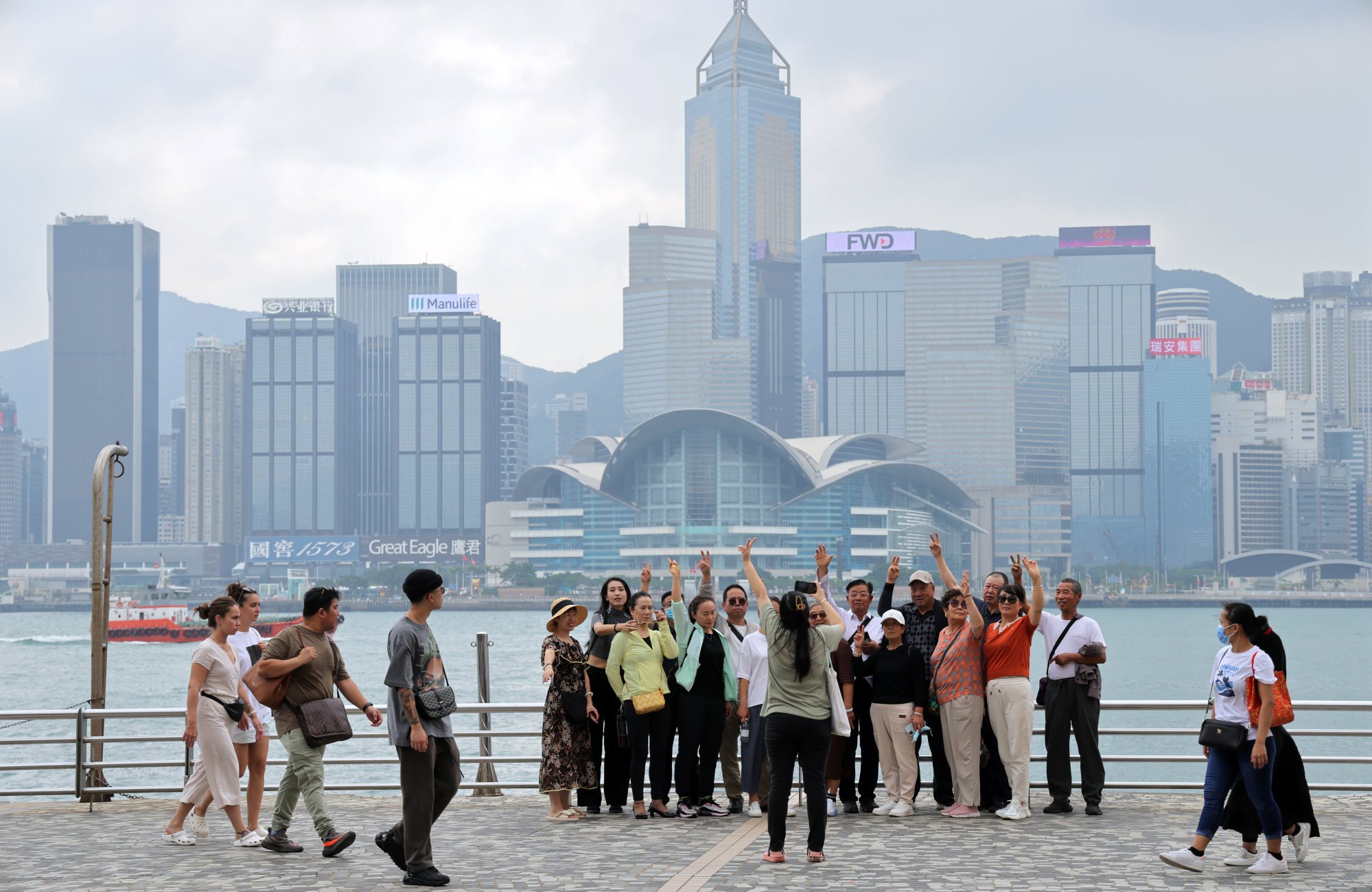
Expert guest lecturers enliven group tours in many places. Good luck finding any who’d dare to explain Hong Kong nowadays
- One of the few benefits of Hong Kong schools’ reliance on rote learning is the preparation they offer people who, as adults, work as tour guides
- These guides parrot a clichéd history of the city. Elsewhere, guest lecturers’ expertise and honest answers enliven tours. That won’t work in today’s Hong Kong
According to a succession of chief executives, tourism is vitally important to the local economy. But like much else in contemporary Hong Kong, this allegedly key industry continues to wallow in the doldrums.
Presentation of local “attractions” remains problematic. Preferred tour-bus-style excursion routes were originally designed – back in the 1970s – to give readily digestible, “on the right you can see …” scenic overviews to overseas punters with a presumedly sketchy grasp of exactly where they were in the world.
Orientalist twists were essential to these cliché-raddled scripts; exotic East tropes, such as contrived feng shui explanations for local architectural design quirks, allowed complex – and inherently more interesting – explanations to be reduced to a few easily remembered, readily regurgitated sentences.
Better yet, these “Pearl of the Orient” infused traveller’s tales offered no mental challenge to passive listeners; tour-bus passengers could tune in (or out) from the guide’s buttery commentary as overall subject interest, personal stamina and residual jet-lag levels permitted.

In the minds of their originators, these colourful snippets, accompanied by randomly snapped photos taken from the tour bus window, also provided a repertoire of ready-made, presumably memorable stories to tell the folks back home in Buttcrack Falls.
Becoming a tour guide back then required few skills beyond reasonable English (or, by the 1980s, Japanese) and a copious memory for rote-learned regurgitation – the Hong Kong education system, at its worst, produces superb exemplars of this sorry skill set – and enabled tour operator margins to be kept low; staff wages inevitably reflected these factors.

But move up the group-tour value-added chain, and the overall picture dramatically shifts.
All over the world, from first world war battlefield locations in France and Belgium, and their second world war equivalents in North Africa, the Far East and the Pacific, to biodiversity hot spots in Indonesia, Gabon and Costa Rica, premium prices are charged, and paid, for high-quality guest lecturers who lead select groups around areas that illustrate their research specialisations and expertise. None are “tour guides” in the conventional sense.
But what quality guest lecturer would engage in such potentially troublesome work in contemporary Hong Kong?
Why ‘Night Vibes Hong Kong’ campaign is ‘doomed to fail’
Generally agreed terms for specific historical events are essential; if the social and political convulsions experienced during “2019 And All That”, and the cascade of events over preceding years that led to that sorry state of affairs are, henceforth, to be officially categorised as “black violence” and “colour revolution” incited by shadowy “foreign forces”, then what possible latitude still exists for nuanced, historical background explanations?
And who in their right mind, in these febrile, easily offended days, would dare to offer honest, well-considered answers to straightforward, reasonable questions on recent local history, especially so when apparently random inquiries are posed by unknown persons, in public places, before an audience of total strangers? Why even bother to risk it?
Only those prepared to parrot out trite-sounding, eye-roll inducing answers prefaced by bromides such as “the Basic Law guarantees …”, “Under One Country, Two Systems …” and all the rest, would choose to work in this deliberately unmarked minefield.
Especially so when well-publicised, anonymous snitch lines are available 24 hours a day and, according to various officially released figures, no apparent shortage exists of persons prepared to resolutely and unflinchingly resort to them.
Avoid the Pooh: when funny T-shirts and slogans are no longer amusing
Anyway, it would be wrong to overburden Hong Kong’s hard-working forces of law and order who, after all, have child molesters, vagrant thugs and life-endangering road-racing hooligans to apprehend.
The high salaries and generous overtime allowances paid by the public for their services should not be egregiously wasted upon investigation of vexatious complaints when they have far better things to do.

